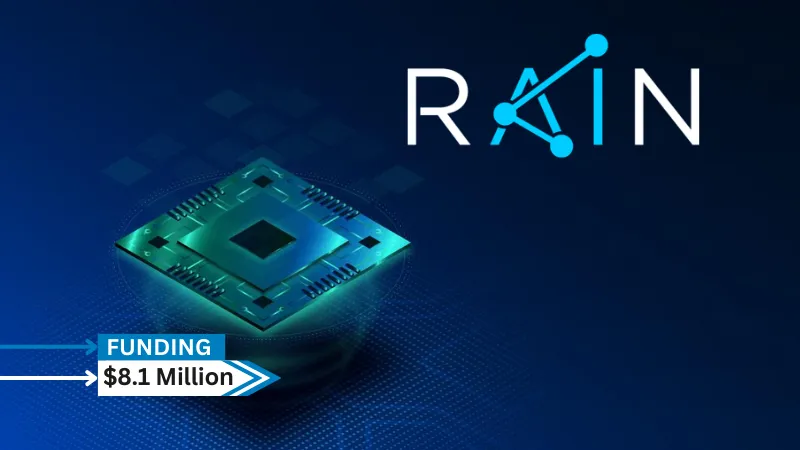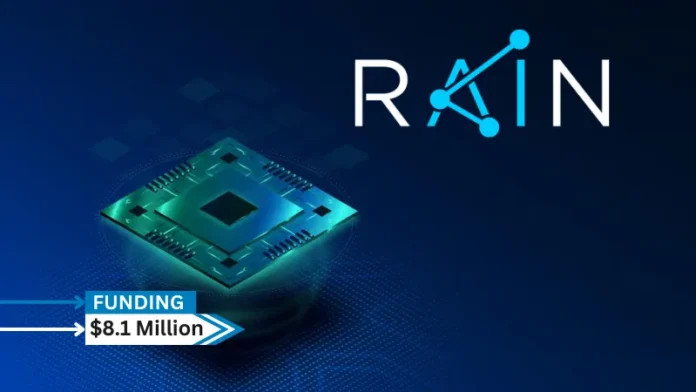
Rain AI , a AI chip startup secures $8.1million in series A extension round funding. Epic Venture Partners made the investment. Rain AI, led by CEO William Passo, uses in-memory computing technology to produce energy-efficient AI hardware that allows sophisticated AI models to run locally on a variety of devices.
With its unique in-memory compute technology, the business is tackling this fundamental issue and paving the way for future AI innovations, such as personalised robotics and ChatGPT-sized models that can be downloaded onto smartphones.
With aspirations to produce its first chip that is ready for customers in 2025, the business is currently in talks to licence its intellectual property with key hyperscalers and semiconductor companies. Numerous sectors will be covered by the use-cases, which include robots, wearables, drones, VR goggles, smartphones, and more.
Read also – [Funding News] MA-based OncoveryCare Secures $4.5Million in Seed Funding
Rain AI was established in 2017 and became well-known very soon after it was admitted to Y-Combinator in 2018. The startup moved to Silicon Valley to expand its research and development operations after securing a $5 million seed financing sponsored by OpenAI co-founder Sam Altman. Rain AI raised a $25 million Series A investment in 2022.
Founder and CEO of OpenAI Sam Altman, founding engineer of Facebook Jeff Rothschild, co-founder of AI startup Cue (acquired by Apple), founder of autonomous vehicle startup Voyage (acquired by Cruise Oliver Cameron), founding engineer of Skype Jaan Tallinn, and early member of OpenAI’s technical team Scott Grey are just a few of the notable investors who have contributed over $40 million to the company.
In addition, Dr. Arijit Raychowdhury, the chair of Georgia Tech University’s Electrical and Computer Engineering Department and a specialist in in-memory computing, and Dr. Jackson Hu, the former CEO and Chairman of UMC, make up Rain AI’s advisory board.
About Rain AI
Rain AI are building a scalable and abundant artificial intelligence ecosystem for the future. They are developing the most energy- and cost-efficient hardware for artificial intelligence. Because they co-design every tier of the AI stack, from circuits to algorithms, our products outperform the current state of the art by an order of magnitude.



